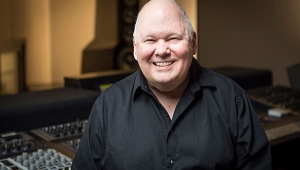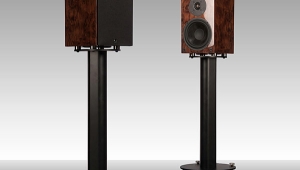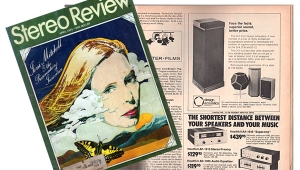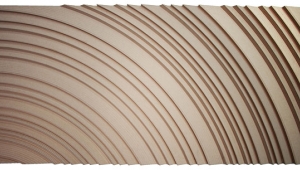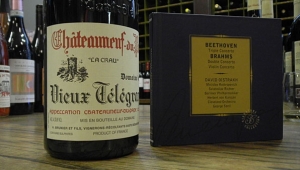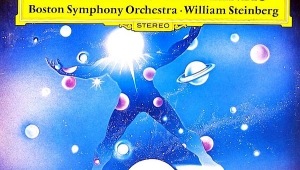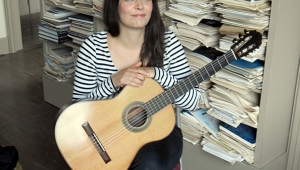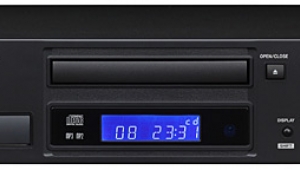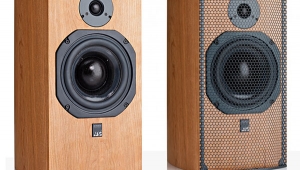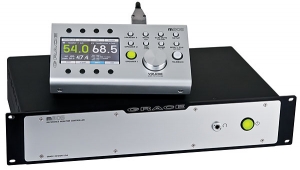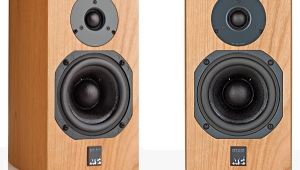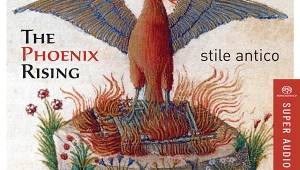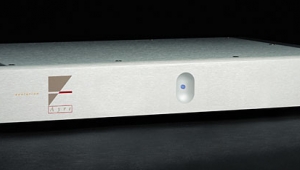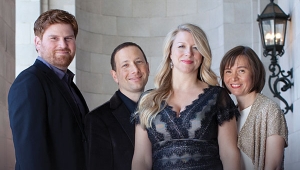| Columns Retired Columns & Blogs |
The Fifth Element #61 Page 2
Lincoln was not the only US political-historical figure with a musical side. Charles Gates Dawes, who later served as Calvin Coolidge's Vice-President, wrote "Melody in A Major," which became one of violinist Fritz Kreisler's favorite encore pieces, and was later picked up by Tommy Dorsey's big band. Dawes shared the 1925 Nobel Peace Prize for his work in rebuilding Europe after World War I.
In 1951, perhaps prompted by Dawes' death earlier that year, songwriter Carl Sigman decided that Dawes' "Melody" would be a great vehicle for some bittersweet lyrics. The result, "(Many a Tear Has to Fall, but) It's All in the Game," in due course morphed from pop hit to evergreen classic, with AllMusic.com listing 586 covers. Standout versions include those by Louis Armstrong, Nat King Cole, Cass Elliott, George Benson, Keith Jarrett, and at least four different versions by Van Morrison. John Atkinson and I have long shared a fondness for Morrison's quirkily uneven but inspired 1983 live CD, Live at the Grand Opera House Belfast, which features "It's All in the Game."
With the coming of the phonograph, radio, television, and all the rest, music changed forever. Our problem today is not any scarcity of music; it's trying to drink it from the digital fire hose. Perhaps by focusing for a while on music that strikes the "mystic chords of memory," we can share things that really deserve attention.
The Birth of a Music Critic
Because I was a very late talker (not until age three) and poorly coordinated, my parents were told to expect me to be "slow." However, music, even the most mundane—a Christmas gift of a musical jack-in-the-box that played "Too Long at the Fair"—had the power to transfix me. The only one in the family, though, who approached the status of being a professional musician was my mother's brother, who played trombone and sang in a (if I recall correctly) US Army Air Forces big band. He was good enough to make some 78rpm records during the WWII recordings blackout, of then-popular ballads such as "Same Old Dream."
My musical and audio-critical faculties manifested themselves early on. My eldest brother had been given a Magnavox suitcase stereo record player. One of his first record purchases was a 45rpm single of Roy Orbison's "Workin' for the Man." The raucous sound it made so offended me that I impulsively spat a piece of Christmas candy at the spinning record, which by chance was carried around by the LP so that it lifted the tonearm off the record and stuck to the needle, silencing the music and leaving a sticky smear on the vinyl. (I still remember the frisson of gratification.) In retrospect, I'm sure it was phono-stylus mistracking that accounted for at least half of my visceral disgust.
When I was young, television did not dominate the domestic sphere as it has since. I think my parents and relatives were still more tuned in to radio—they sometimes spoke of Hit Parade as though it were still on the air. Ted Mack's The Original Amateur Hour, the American Idol of the Eisenhower years—and on which Louis Farrakhan once played the violin as a contestant—was a television fixture, however, and we children were encouraged to put on little talent shows.
My mother's aunts were retired schoolteachers. Aunt Grace played the piano adequately, and in her youth had sung in public. I was perhaps in kindergarten when I began singing sheet-music staples such as "Harbor Lights," the romantic ardor of which must have sounded pretty weird coming from a little person who stood barely taller than the keyboard. But I had a bright, clear, boy-soprano tone, the makings of a "Danny Boy" Irish tenor, and could hit the notes in the middle. I didn't think much at all about whether I was good. I just knew that I got lost in the music.
Back then, all public-school children got something of a musical education, with in-class singing and, later, "Sing Assemblies," in which the music teacher would play the piano, and magic-lantern slides of the lyrics would be shown on a screen. I tried out for the junior-high chorus. Fortunately, I was familiar with the audition piece, "Sunrise, Sunset," from Fiddler on the Roof, but I'm sure I could have sung anything from The Sound of Music, too. The chorus's repertoire was a decidedly mixed bag. There was 1960s politically correct stuff such as "Guantanamera" and "Tout le Monde Aime Samedi Soir," and musical-comedy piffle such as "Talk to the Animals," but there was also serious music such as In Paradisum, from Fauré's Requiem, and worthwhile Folk Revival stuff such as "The Water Is Wide." (I still love Fauré, but his Cantique de Jean Racine has displaced the Requiem in my affections.)
I also was in the Junior All-City Orchestra, playing principal second violin. The piece I most remember was an excerpt from Rimsky-Korsakov's Scheherazade, an abridgement of the movement titled The Young Prince and The Young Princess. I think that experience—and, even before that, the sound I was immersed in the first time I heard the full orchestra tune up—established the sound of orchestral strings as the center of my musical life. Around that time my parents gave me my own stereo, and I began buying my own records. The rest, as they say, is history—some memories of which I will now share with you. (In view of space limitations, I will leave out discographic information for all but my own five "Mystic Chords" write-in picks.)
Don't Miss These
My oldest brother's stereo was accompanied by membership in the RCA Record Club, which brought along with it many of the usual suspects. Of those, I'm not sure how well Van Cliburn's concerto debut has stood the test of time. Back then, I was told that Ferde Grofé's Grand Canyon Suite was the most-often-performed piece of American orchestral music. I have a hard time imagining that that is still true today. However, Charles Munch and the Boston Symphony's 1956 recording of Debussy's La Mer, originally coupled with Ibert's Ports of Call, has not only withstood the test of time, it seems to get better with each passing year.
The BSO was then at its peak. The orchestra still retained the crack discipline Serge Koussevitzky had instilled, but the music benefitted from Munch's more relaxed approach. The sound was golden, and RCA's early-stereo engineering captured the echoic effects and shifting tone colors of Debussy's score in a way that I think has not been bettered. Munch, himself a violinist, had French music in his blood. (A conductor in Paris when WWII broke out, Munch protected members of his orchestra from the Gestapo and financially supported the Resistance, services for which he was awarded the Legion of Honor with Red Ribbon in 1945.) The SACD/CD edition (at a bargain price), titled A Hi-Fi Spectacular!, is the one to get.
- Log in or register to post comments
